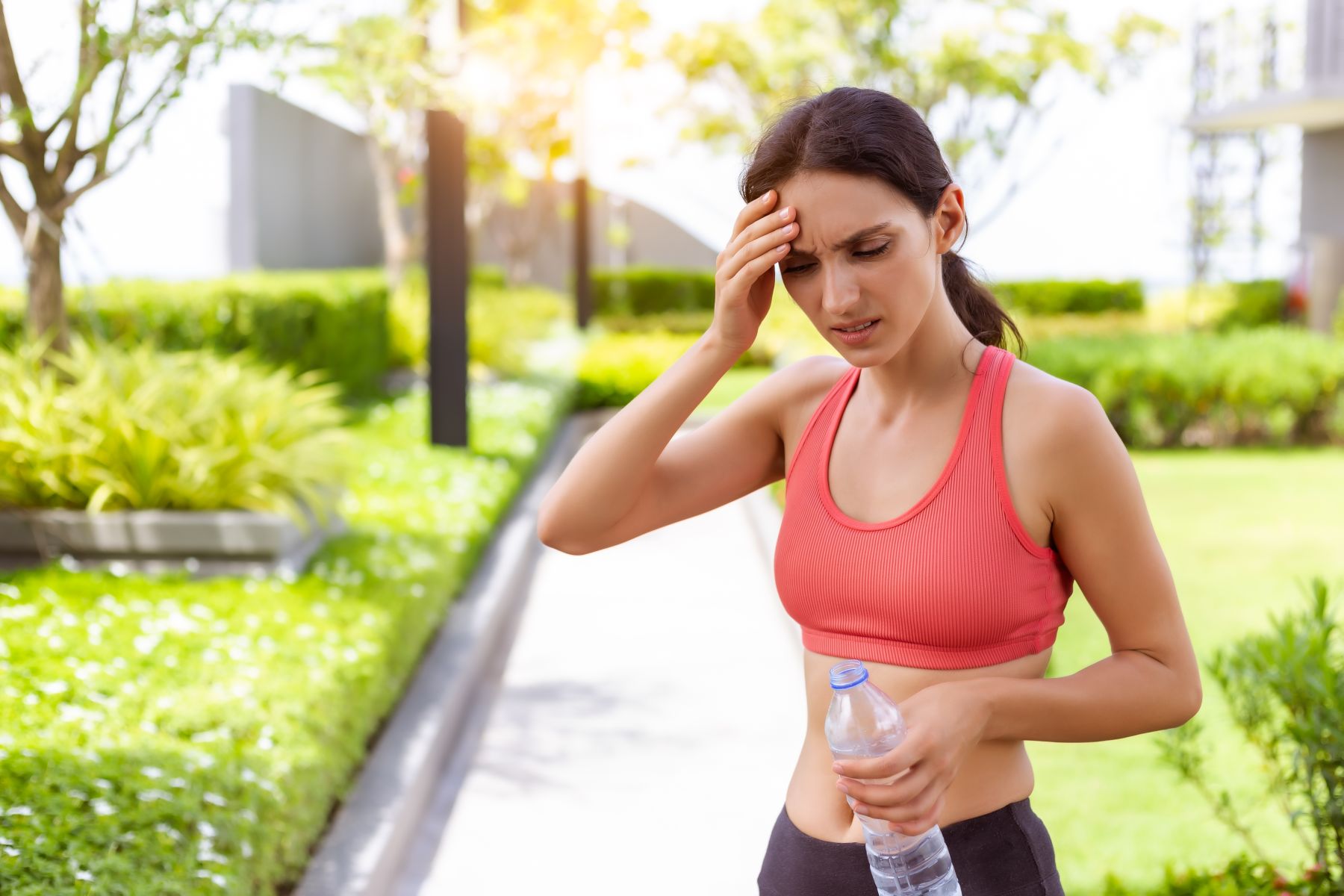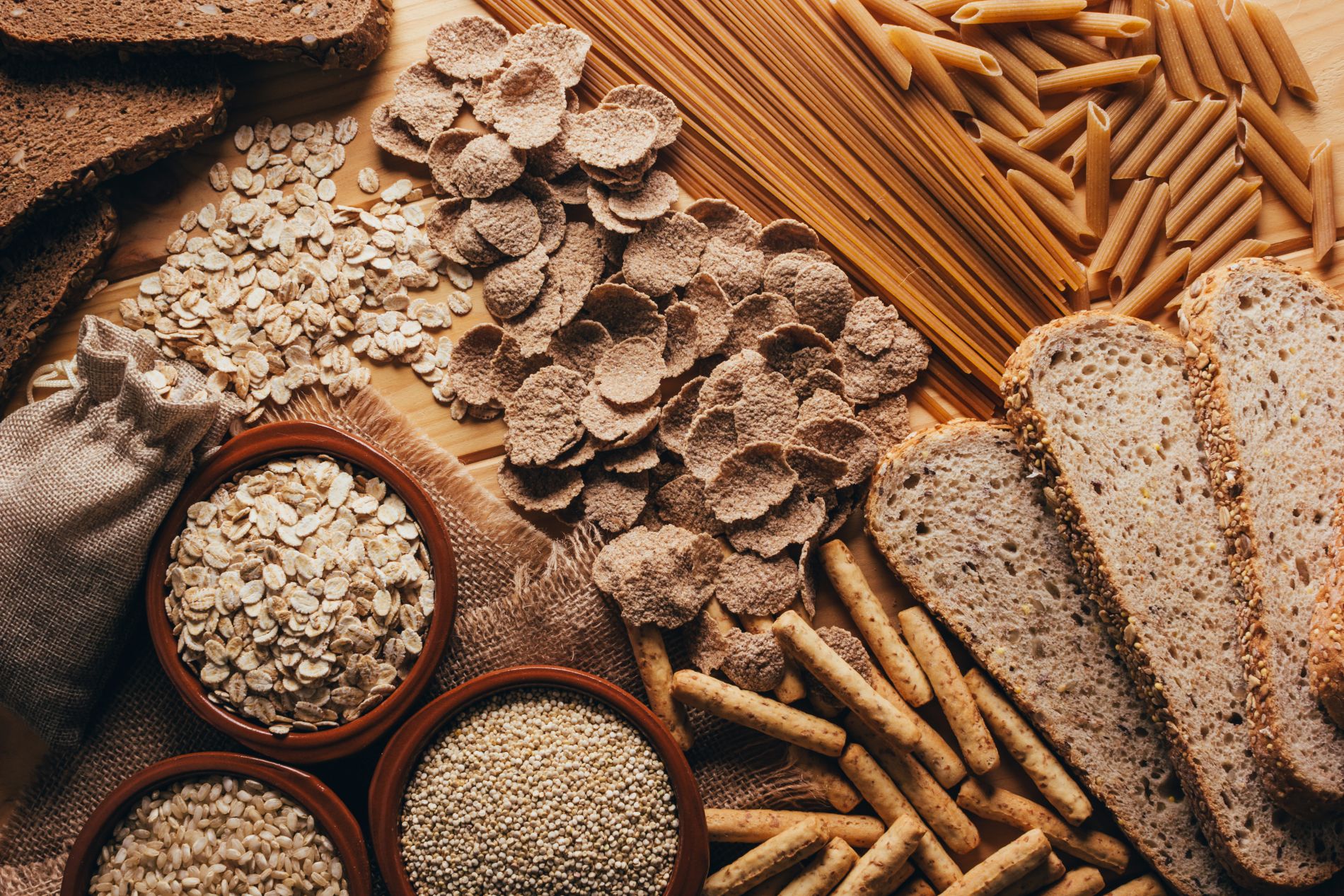How to deal with dehydration?

Water is an essential substance for life and the proper functioning of the human body, which is why it is often referred to as the fourth macronutrient. It enters into the composition of all cells of the human body, so in adults it accounts for as much as nearly 60% of body weight. Water has many important functions in the human body and cannot be stored in larger quantities, hence dehydration should be avoided, which can lead to serious health disorders. Let's find out what dehydration is and how to deal with it.
- Water - what role does it play in the human body?
- How to take care of proper hydration of the body?
- Proper hydration status in athletes - why is it so important?
- What is dehydration?
- What are the most common symptoms of dehydration?
- How to deal with dehydration?
Water - what role does it play in the human body?
Proper hydration status of the body is extremely important for maintaining good health and high physical performance. Adequate water content in the human body makes it possible to maintain a constant body temperature and the proper conduct of many vital processes that occur in a relatively small temperature range. Water is involved in the digestion of food and absorption of nutrients, regulation of water-electrolyte and acid-base metabolism, and excretion of metabolic products and toxins from the body. In addition, water is classified as an essential nutrient due to the fact that the human body is unable to produce it in sufficient quantities to meet its basic needs.
How to take care of proper hydration of the body?
Adequate hydration of the body affects the proper course of many metabolic processes, as well as psychophysical well-being, performance capabilities and kidney function, and also helps avoid constipation. To ensure proper hydration of the body, 1 ml of water should be drunk every day for every 1 kcal consumed in the diet (e.g. 2500 kcal is 2.5 liters of water). However, water requirements should be considered individually each time, as they can vary significantly depending on age, physical activity level, physiological state and the presence of certain diseases. It is recommended to drink an adequate amount of fluids in small sips throughout the day, and even more so before, during and after physical activity, in order to maintain high mental and physical fitness, well-being and maximize the body's exercise capacity. The main sources of water in the human diet include beverages and foods, of which vegetables (up to 95%), fruits (up to 87%) and milk and dairy drinks (87-89%) contain the highest amount of water.
Proper hydration status in athletes - why is it so important?
Under the influence of intense physical activity, as well as staying in high temperatures and reduced humidity of the environment or at high altitudes (e.g., during high-mountain expeditions), more water is lost than under normal conditions. For this reason, it is essential to replenish water loss through an appropriately increased supply of fluids and electrolytes. In addition to the usual daily loss of water from the gastrointestinal tract, kidneys and during respiration, people who regularly engage in sports must take into account the large loss of water with sweat produced during the physical activity they undertake. In addition to water, sweat also contains significant amounts of sodium, as well as smaller amounts of potassium, calcium and magnesium. The process of sweating helps the body get rid of excess heat, which is generated by muscle work and in addition is often compounded by environmental conditions. By sweating, the body can maintain its body temperature at an appropriate level. All professional and amateur athletes should strive each day to ensure an adequate supply of fluids to maintain proper hydration levels before, during and after exercise. This is absolutely essential for maintaining the body's vital functions, high performance and cognitive abilities, and well-being.

What is dehydration?
The human body does not have the capacity to store more water, which is why a regular and adequate supply of water in the diet is so important. Insufficient fluid intake can already lead to dehydration in a short period of time, which promotes the onset of serious health disorders. Dehydration is defined as a physiological condition in which the content of water and electrolytes falls below the values necessary for the normal functioning of the human body.
What are the most common symptoms of dehydration?
The first symptoms of dehydration can already appear with a water loss of more than 1% of body weight. Then there is a deterioration of thermoregulatory processes, cognitive functions (memory, attention) and mood disorders, as well as a decrease in physical capacity, decreased appetite and general weakness of the body. Significant reduction in the body's performance capabilities during intensive exercise (aerobic, strength and mixed) and deterioration of technical skills typical of specific sports is most often observed in situations of fluid loss due to dehydration at the level of 3-5% of body weight. In contrast, profound dehydration, characterized by a body water deficit of 6-10% of body weight, has an even more pronounced effect on deterioration of exercise tolerance, a decrease in cardiac output (CO), sweat production and skin and muscle blood flow.
How to deal with dehydration?
All competitive as well as recreational athletes can achieve an adequate state of hydration before engaging in physical activity by consuming fluids at a rate of 5-10 ml for each kg of body weight, between 2 and 4 hours before the start of an exercise session or competition, in order to achieve a straw color of urine. In addition, the sodium in fluids and meals consumed before exercise can help retain water in the body. Athletes should drink enough fluids during training to replenish the loss of water along with sweat, so that the total amount of fluid lost is limited to a maximum of 2% of body weight. The beverage consumption pattern (mainly water and isotonic drinks) that will be adequate for the vast majority of athletes assumes a fluid intake of 0.4 to 0.8 liters for each hour of exercise. Since sweating and urinary water losses continue after exercise or competition, an effective fluid replenishment strategy requires the consumption of 1.25-1.5 liters of fluids for every 1 kg of body weight lost.
Sources:
-
Thomas DT, Erdman KA, Burke LM: American College of Sports Medicine Joint Position Statement. Nutrition and Athletic Performance. Med Sci Sports Exerc. 2016;48(3):543-568.
-
Judge LW, Bellar DM, Popp JK, et al: Hydration to Maximize Performance and Recovery: Knowledge, Attitudes, and Behaviors Among Collegiate Track and Field Throwers. J Hum Kinet. 2021 Jul 28;79:111-122.
-
Belval LN, Hosokawa Y, Casa DJ, et al: Practical Hydration Solutions for Sports. Nutrients. 2019 Jul 9;11(7):1550.
-
Magee PJ, Gallagher AM, McCormack JM.: High Prevalence of Dehydration and Inadequate Nutritional Knowledge Among University and Club Level Athletes. Int J Sport Nutr Exerc Metab. 2017 Apr;27(2):158-168.
-
Armstrong LE.: Rehydration during Endurance Exercise: Challenges, Research, Options, Methods. Nutrients. 2021 Mar 9;13(3):887.
-
Berry CW, Wolf ST, Cottle RM, et al: Hydration Is More Important Than Exogenous Carbohydrate Intake During Push-to-the-Finish Cycle Exercise in the Heat. Front Sports Act Living. 2021 Oct 21;3:742710.
 ⮜ Previous article
⮜ Previous article
Silica - uses, properties
 Next article ⮞
Next article ⮞